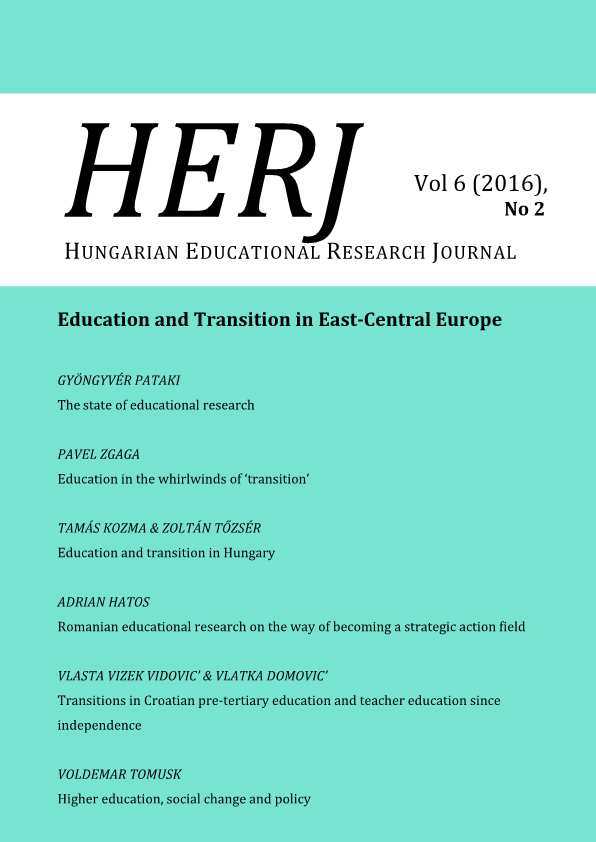Education and Transition in Hungary: Policy and Research in the Process of Transformation, 1988--2004
Education and Transition in Hungary: Policy and Research in the Process of Transformation, 1988--2004
Author(s): Tamás Kozma, Zoltán TőzsérSubject(s): History of Education, State/Government and Education, Sociology of Education
Published by: Hungarian Educational Research Association (HERA)
Keywords: educational history; educational change; politics of education; Central and Eastern Europe; political transition; Hungary
Summary/Abstract: The cross-border co-operations in education and their monitoring studies started as late as 1990 in Hungary. Border regions and their neighbourhood were closed areas during the Cold War era and were opened up only after the political turn of 1989/90. In the first phase of the transition (1990-93) school principals and policy makers initiated cross-border co-operations between schools operated both sides of the state borders. All the more since ethnic Hungarians were living and attending school in both sides of the state border. In the second phase of the transition (1993-2004), those grass-root co-operations turned to be government policy to support the Hungarian communities and their educations and institutions in Romania, Ukraine, Slovakia, later (after the Balkan war) in Serbia and Croatia as well. Those efforts caused, however, serious objections on behalf of the neighbouring governments which felt that Hungary wanted to influence their educational as well as minority policies. 2004 changed the scene completely. Hungary and most of her neighbours have joined the EU while others rushed for it. The EU, however, does not have a direct policy for the national and ethnic communities living in minority status. The grass-root institutions of the Hungarian communities having been established during the turbulent years of 1990-93 face a new dilemma. They should be part of the national education systems of their majority countries (supported by the EU)—or the wouldbe marginalised.
Journal: HERJ Hungarian Educational Research Journal
- Issue Year: 6/2016
- Issue No: 2
- Page Range: 23-42
- Page Count: 20
- Language: English

